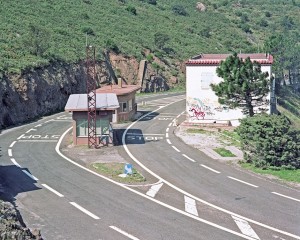Thanks to P.M. Lawrence @ LewRockwell.com (2008-03-10) for highlighting an interesting passage from an old book. Interesting to me, anyway, because of the way in which its aging rhetoric reveals what it once tried to conceal, and the way in which what it reveals lives on to this day, in the theory and practice behind countless privateering government development
projects, both at home, and abroad. This is from Sonia E. Howe’s 1938 history of the French conquest and colonization of Madagascar, under the rule of political hit man Joseph Simon Gallieni.
There was the introduction of equitable taxation, so vital from the financial point of view; but also of such great political, moral and economic importance. It was the tangible proof of French authority having come to stay; it was the stimulus required to make an inherently lazy people work. Once they had learned to earn they would begin to spend, whereby commerce and industry would develop.
The corvée in its old form could not be continued, yet workmen were required both by the colonists, and by the Government for its vast schemes of public works.
No, they weren’t.
The General therefore passed a temporary law, in which taxation and labour were combined, to be modified according to country, the people, and their mentality. Thus, for instance, every male among the Hovas, from the age of sixteen to sixty, had either to pay twenty-five francs a year, or give fifty days of labour of nine hours a day, for which he was to be paid twenty centimes, a sum sufficient to feed him. Exempted from taxation and labour were soldiers, militia, Government clerks, and any Hova who knew French, also all who had entered into a contract of labour with a colonist. Unfortunately, this latter clause lent itself to tremendous abuses. By paying a small sum to some European, who nominally engaged them, thousands bought their freedom from work and taxation by these fictitious contracts, to be free to continue their lazy, unprofitable existence. To this abuse an end had to be made.
No, it didn’t.
The urgency of a sound fiscal system was of tremendous importance to carry out all the schemes for the welfare and development of the island, and this demanded a local budget.
No, it didn’t.
The goal to be kept in view was to make the colony, as soon as possible, self-supporting. This end the Governor-General succeeded in achieving within a few years.
No, he didn’t.
The Malagasy natives supported themselves well enough on Madagascar, through the sweat of their own brow, for centuries before ever a white man ever arrived. What the Governor-General succeeded in achieving within a few years was not to make Madagascar self-supporting, but rather to use a mixed system of robbery and involuntary servitude to coerce otherwise unwilling Malagasy workers into working more than they otherwise would, in return for less than they would otherwise get, so that a self-supporting population could be browbeaten and bullied into not only supporting themselves, but also supporting a parasitic new class of governors and land-grabbers in the style to which the kleptocrats had become accustomed.
Of course, it is typical enough for politicians and politically-connected businessmen with a vast scheme
to call out armed men to seize taxes and force labor, on the excuse that something so big couldn’t ever be pulled off consensually, which amounts to nothing more than demonstrating that robbery and slavery are the necessary means to an unnecessary goal. But what’s especially interesting to me here is the classical colonialist rhetoric, to the effect that it must be the inherent laziness
and moral turpitude of the Malagasy natives that made them more interested in living their own lives and freely pursuing their own projects and traditions, rather than happily turning over their wealth and their lives to the vast schemes
of the Government and the enrichment of its sponsored privateers. If they dare to prefer working on their own stuff to working on white people’s stuff, then clearly it will take the cudgel to teach them some civilized manners.
For the colonial mindset, this kind of attitude was like oxygen is for us–pervasive, invisible, taken for granted, and absolutely essential. In 1938, a European historian writing about colonialism in Africa would think nothing of saying commonplaces like these, and if it is jarring to read now, it’s only because, in the intervening years, the most explicit statements of that mindset have been questioned, vigorously challenged, and cast down out of cultural favor in Europe and the U.S. But the mindset itself is not gone, and its legacy lives on in the new words that the new powers that be have crafted to conceal what these old words now reveal to us. This is true of the way that the ruling elite in the U.S. and the other Great Powers talk about their military and government-financing projects abroad; it’s also true of the way that the ruling elite in the U.S. and the other Great Powers talk about their government seizure and government financing projects at home–whether in the form of taxes, government-driven technology plans, or the seizure, bulldozing, transfer, and subsidized remaking of undeveloped
land.







